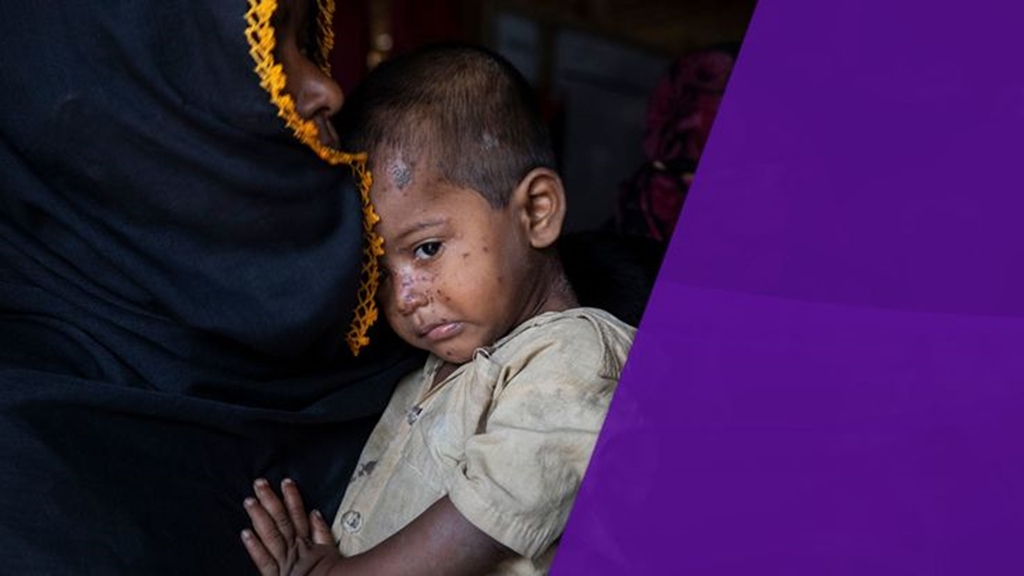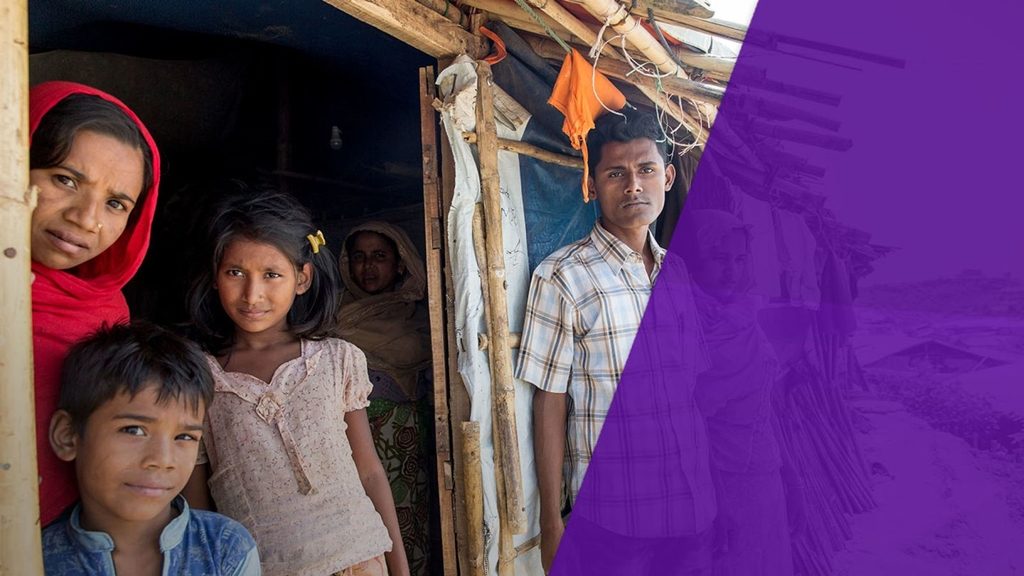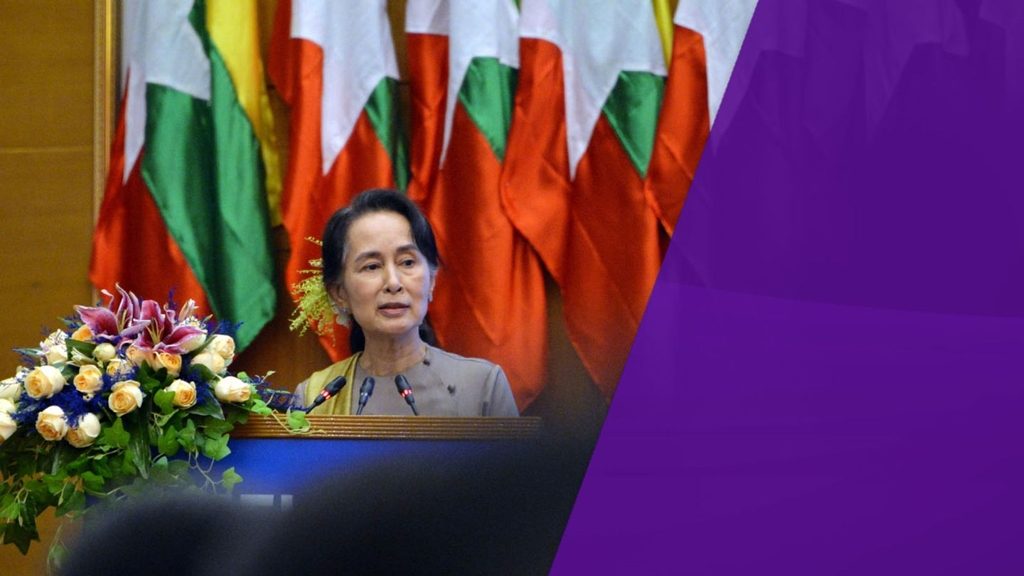
Sky Views: Two years later, we have forgotten and failed the Rohingya
- 26/08/2019
- 0
By Siobhan Robbins, Sky News
Some images etch themselves into your mind.
We all have them; some are moments of utter joy like seeing your child’s face for the first time or the smile of a partner on your wedding day, but others are bleaker.
The tears of a heartbroken widow who weeps at the grave of a husband swallowed up by an earthquake, or the pleading stare of a girl struggling to understand why she survived a terror attack when others didn’t; snapshots of misery burned into the brain.
I wasn’t in Bangladesh when the Rohingya fled a suspected genocide in 2017, but I’ll never forget the scenes of that exodus.
Through mud thick from monsoon rains more than 700,000 people trudged, a stream of haunted faces, all fleeing for their lives.
Exhausted, many carried small children or propped up elderly relatives who shook with every agonising step.
Devastated women struggled through the pain of horrific injuries from rape and torture, determined to keep going until they were safe.

For weeks and weeks, refugees streamed over the border from Myanmar, bringing with them terrifying accounts of burning villages and loved ones murdered by the military.
It was a crisis that shocked the world.
Messages of support and aid flowed in for the Rohingya, while governments including the UK and US condemned the violence, saying military action in Rakhine state had to stop.
Today is the second anniversary of the exodus and despite the strong words and condemnation, the military and government accused of ordering the crackdown are largely still in power as the Rohingya sit in overcrowded camps until they believe it’s safe to return home.
Ultimately, over the last 24 months we, the global community, have failed some of the most vulnerable people on earth.

On Thursday, an attempt to repatriate 3,450 Rohingya Muslims fell flat after no one agreed to go back.
And who can blame them?
Myanmar has rejected UN and western categorisation of the 2017 violence, saying it was a legitimate counter-insurgency operation after militant attacks.
Numerous local officials have told me that the Rohingya Muslims burned down their own houses.
Hundreds of thousands of Rohingya still living in Rakhine state are routinely confined to camps or villages.
The government has consistently refused to recognise them as an ethnic minority, rendering them stateless and leaving them open to various forms of state-sanctioned discrimination.
They still won’t guarantee the refugees the basic rights of citizenship they demand, regarding them as Bengali interlopers, despite many living in Rakhine for generations.
Ultimately, over the last 24 months we, the global community, have failed some of the most vulnerable people on earth. – Siobhan Robbins
It’s true, Myanmar’s state-run repatriation centres have been ready to accept returnees for more than a year.
They say their doors are open, they’ve “made all the necessary preparations” for repatriation and they’re baffled why no-one wants to return.
But I’ve visited the centres, and while all the facilities are in place, in reality, these are border camps surrounded by high fences and barbed wire, run by authorities accused of genocide in an area where independent monitors are severely restricted.
There are no foreign security forces on the ground ensuring the law is upheld, no “fire and fury” warnings making it clear to the military and Myanmar’s de facto leader, Aung San Suu Kyi, that there will be severe consequences if any returnees are harmed.

Frankly, what is there to deter or prevent a repeat of 2017’s atrocities?
According to Amnesty International, very little.
A report earlier this year accused the military of carrying out fresh war crimes in their ongoing battle with Arakan Army rebels in Rakhine state.
For all the international outrage over the Rohingya massacres and the adoption of a UN Human Rights Council resolution to pursue accountability in Myanmar, the generals who oversaw the 2017 attacks are still in their posts.
Outside access to Rakhine state for aid workers and foreign press is restricted and closely monitored, and in several townships the internet has been turned off for months, hindering reports of what’s happening from getting out.
“With Myanmar’s military as powerful and remorseless as ever, it remains unsafe for anyone to return to Rakhine,” said Nicholas Bequelin, Amnesty International’s regional director for East and Southeast Asia.
So almost a million Rohingya have little choice but to wait in the flood and cyclone-prone camps in Bangladesh as their futures ebb away.
More than half of the population are children, they do not have access to quality education, they suffer from high levels of mental illness, they are malnourished and rates of child marriage are high.
Aid agencies do their best to meet their needs but the world’s attention has moved on and donations are down.
Save the Children told me eight months into the year, the joint response is only 34% funded, with just $313m (£255m) of the requested $920.5m (£750m) received.
“Funding is running dry, and in the meantime, the Rohingya live in makeshift shelters; vulnerable to cyclones and flooding, with poor access to quality health and protection services,” said Athena Rayburn, head of advocacy, media and communications for Save the Children in Cox’s Bazar.
She added: “Refugees in the camps in Cox’s Bazar are still completely reliant on aid and external assistance to survive.”
It’s a desperate and depressing picture.
So while the international community is not to blame for the atrocities carried out on the Rohingya in 2017 – that lies firmly at Myanmar’s door – two years after the crisis began we must all take responsibility for their ongoing suffering.






